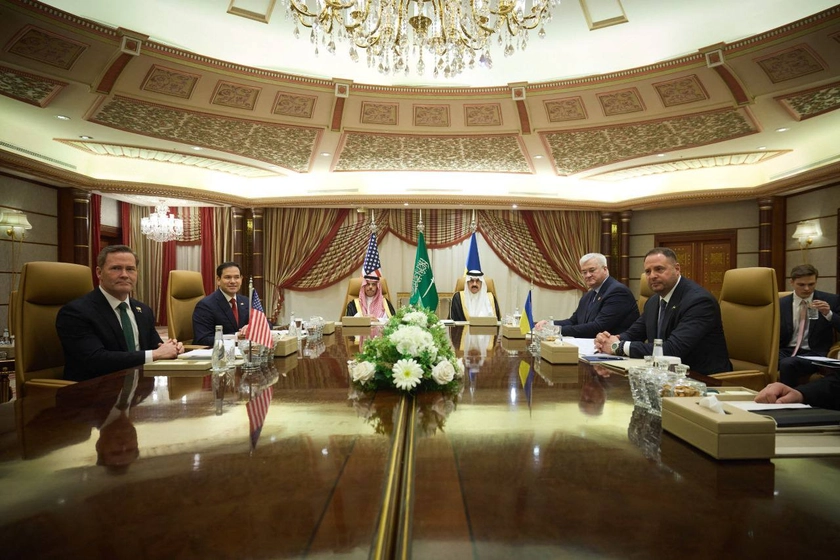German opposition leader Friedrich Merz has called on the country’s chancellor to get involved in the formation of a “contact group” of five countries including Poland, to prepare for the incoming United States president’s expected policy change on Ukraine.
Scholz says German troop deployment to Ukraine “out of question” while war continues
JOIN US ON TELEGRAM
Follow our coverage of the war on the @Kyivpost_official.
The Christian Democratic Union (CDU) candidate for German chancellor, Friedrich Merz, visited Warsaw and Kyiv on Monday to propose the idea of the “contact group” to Prime Minister Donald Tusk and Ukrainian President Volodymyr Zelensky.
The German news agency dpa reported that while the CDU politician was in the Polish capital he said that he had informed the German government of his proposal.
"The proposal of the contact group should also be taken up now by the German government," he said.
Tusk and Zelensky accepted the proposal, Merz said on Monday evening in an interview with German public broadcaster ZDF.
Merz envisions an alliance between Germany, France, Great Britain and Poland that will develop a strategy to respond to concerns in Ukraine and the EU about the extent to which Donald Trump will provide military aid to Ukraine after taking office as US president on 20 January.
“These four countries should prepare together with Ukraine for all possible scenarios that we can expect next year after the change of government in Washington,” Merz said.
Lithuania Says Russian Military Intelligence Behind Ikea Store Arson
“Donald Trump seems determined to change policy, but what this policy will be is an open question," the politician added.
Merz has repeatedly accused the current German chancellor Olaf Scholz of being too hesitant to support Ukraine, which is defending itself against Russia.
Scholz claims that he is more cautious than Merz when it comes to Russia's war against Ukraine, and thus avoids escalation.
[The leaders of Germany’s major parties have agreed to hold a federal election on Feb. 23, 2025, if Scholz loses a vote of confidence in the Bundestag – Eds]
See the original here.
You can also highlight the text and press Ctrl + Enter











